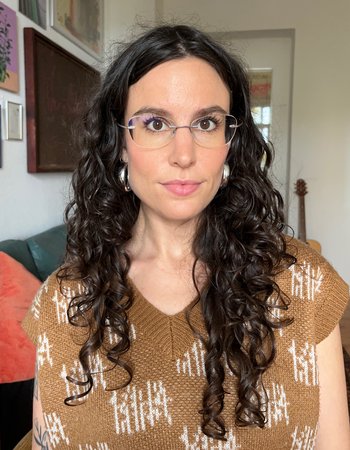Who Owns the Foundation? Infrastructure Orders and the Renegotiation of the Public Sphere

Outline
Infrastructures such as water or health care are complex networks characterized by the interlinking of objects, resources, services, and governance structures, each with layered rights of use, access, exploitation, and transfer. These complex chains can be organized in a proprietarily diverse manner along their nodes, with only certain points becoming contested or publicly debated.
Infrastructures remain a moving target. After decades of privatisation, commodification, and austerity-driven underfunding, new dynamics have emerged. These include successful (re)municipalisation at the urban level, the growing recognition of social and material infrastructure as fundamentally system-relevant since the pandemic, and evolving European and national legal norms to protect critical infrastructure amid shifting security concerns. While academic research has either focused on broad concepts of public services and infrastructures —such as ‘foundational economy’ and ‘infrastructure socialism’ — or on specific single cases, comparative analyses are rare. Even though understanding the interdependence of different infrastructure systems is crucial for a more conceptual approach to infrastructures of welfare, this perspective remains underexplored so far.
Against this backdrop and with a focus on the hidden layers of complex infrastructures, our project addresses two research questions:
(1) Infrastructure discourses: How are infrastructures negotiated? What understanding of the state emerges, and how is ownership addressed? How are contributions from state, private, and civil society actors understood?
(2) Infrastructure regimes: How are infrastructure regimes structured? What ownership forms emerge, and what role do non-proprietary solutions play? How do different systems interact, how are they prioritised, and how do they in turn shape societal ownership regimes?
The project will continue the research in Spain and the UK, adding Germany as a third case study. The empirical analysis will focus on six interconnected infrastructure areas: material infrastructures in water and energy, social infrastructures in childcare and elderly care, and hybrid infrastructures in health and nutrition, where material structures and social services intersect. Methodologically, the research will employ participant observation, focus group discussions, expert interviews, and document analysis.
The project contributes to exploring the diversity of ownership forms and their complex interconnections through the lens of infrastructures while also analyzing the significance of non-proprietary principles (e.g., social rights, commons, or open access). Of particular interest is the question of whether, after years of privatisation, deregulation and commodification, a new statism—driven by critique and crisis—can be observed.
Project Activities
Publications
Scientific publications
- van Dyk, Silke; Gümplová, Petra; Kip, Markus (2025): „Commons and/against Property“, in: SFB-Blog "Transformation of Property", 11. Januar 2025.
- van Dyk, Silke (2024): „Das Kollektive im Privaten. Privateigentum als Schuld an der Gesellschaft und eine neue Politik des Öffentlichen, In: Silke van Dyk, Tilman Reitz & Hartmut Rosa, Nach dem Privateigentum? Güter, Infrastrukturen und Weltverhältnisse im Kapitalismus des 21. Jahrhunderts, Frankfurt/New York: Campus, 131-225.
- van Dyk, Silke; Gerstenhöfer, Luzie; Kip, Markus (2024): “Sozial- und Solidarwirtschaft im neuen Munizipalismus: Eine Entprivatisierung der Stadt?” In: Berliner Journal für Soziologie, 34 (4), 515-549. DOI: 10.1007/s11609-024-00541-4.
- van Dyk, Silke; Kip, Markus (2024): “Double Democratization and the Politics of Property in Municipalist Barcelona”, In: Journal of Political Sociology 2(1), 48-79. DOI: 10.54195/jps.17837
- van Dyk, Silke (2024): “Privateigentum als Privileg”, In: Aus Politik und Zeitgeschichte, 74 (21), 28-33.
- van Dyk, Silke; Kip, Markus (2023a): “Die Zukunft sozialer Rechte. Sozialeigentum als Vergesellschaftung von Sozialpolitik”, In: Zeitschrift für Soziologie, 52(4), 361-378. DOI: 10.1515/zfsoz-2023-2025.
- van Dyk, Silke; Kip, Markus (2023b): “Rethinking Social Rights as Social Property: Alternatives to Private Property, and the Democratisation of Public Politics”, In: Critical Sociology, OnlineFirst 2023. DOI: 10.1177/08969205231195378.
- van Dyk, Silke (2022): “(Ent-)Privatisierung und Kollektiveigentum. Von der Engführung der Verteilungsfrage zu einer neuen Politik des Öffentlichen”, In: Kurswechsel, Heft 3/2022, 9-21.
Media and podcasts
- „Alternative Gouvernementalität“, Silke van Dyk zu Gast in Podcast Future Histories. Der Podcast zur Erweiterung unserer Vorstellung von Zukunft, Staffel 3, Folge 28. (Dezember 2024)
- "Solidarwirtschaft mit Hindernissen. Eine Bilanz des neuen Munizipalismus in Barcelona", Article by Silke van Dyk, Markus Kip and Luzie Gerstenhöfer in Zeitschrift Luxemburg (May 2024)
- "Tag für Tag enteignet“, Guest article by Silke van Dyk in Frankfurter Rundschau (17.04.2023).
- “The Future of Social Rights – Social Rights as Property? Thinking with and beyond Robert Castel”, Silke van Dyk and Markus Kip in the SFB Podcast. (14.07.2022)
- “Multiple Krisen, das Primat des Eigentums und die Frage der Transformation”, Silke van Dyk has written a literature essay on "Owning the Future. Power and Property in an Age of Crisis" by Buller and Lawrence for Soziopolis. (04.10.2022)
- “Synapsen. Eigentum verpflichtet“, Silke van Dyk as a guest on the NDR Science Podcast. (11.07.2022)
- “Meins oder Deins: Bröckelt das Privateigentum?“, Silke van Dyk as a guest on the MDR podcast “Das große Ganze” (10.02.2022)
- “Die untere Hälfte besitzt nichts“, Silke van Dyk in an interview with the taz about social inequality. (26.08.2021)
- “Der Kampf um die Sandförmchen - Form, Bedeutung, Verteilung und Verpflichtung von Eigentum.“, Silke van Dyk in an interview with Radio F.R.E.I.. (06.07.2021)
- Inquired at the Collaborative Research Centre "Structural Change of Property". Silke van Dyk together with Hartmut Rosa in conversation with Soziopolis. (30.06.2021)
Lectures
-
„Infrastrukturen und eine neue Politik des Öffentlichen“, Lecture by Silke van Dyk at the lecture „Umkämpftes Eigentum“ at the book presentation „Nach dem Privateigentum?“ and the Kurswechsel special issue „Eigentumsfragen“, an event organized by the Arbeiterkammer at Factory Vienna, 21.06.2025.
-
„Daseinsvorsorge als Quelle von Macht. Die gescheiterte Entprivatisierung der Trinkwasserversorgung in Barcelona“, Keynote by Luzie Gerstenhöfer at the workshop „Wasser, Macht und Ungleichheit“, Friedrich-Schiller-Universität Jena, 15.05.2025.
-
„Kollektiveigentum und die Vergesellschaftung von Infrastrukturen. Eine Neuverhandlung des Öffentlichen“, Lecture by Silke van Dyk on the occasion of the Themenfeld C Konferenz „Zwischen öffentlicher Verantwortung und zivilgesellschaftlicher Initiative: Lokale Formen des Zusammenhalts“ of the research institute Gesellschaftlicher Zusammenhalt, Impact Hub, Leipzig, 03.04.2025.
-
„New Municipalism and Infrastructures of Urban Welfare: Collective Ownership versus Community Capitalism“, Opening lecture by Silke van Dyk in the series „Stadssalonsurbains 2025: Infrastructures of Urban Welfare“, Brussels Centre for Urban Studies, Vrije Universiteit Brussel, 07.03.2025
-
„Kollektiveigentum und die Vergesellschaftung von Infrastrukturen. Eine Neuverhandlung des Öffentlichen“, Lecture by Silke van Dyk on the occasion of the international conference of the SFB/TRR 294 „Strukturwandel des Eigentums“ zum Thema „Beyond (Private) Property“?, Friedrich-Schiller-Universität Jena, 6.-9.11.2024.
-
„Commons and/against Property. Featuring the Commons Research oft he SFB“, Lecture on the occasion of the international conference of the SFB/TRR 294 „Strukturwandel des Eigentums“ zum Thema „Beyond (Private) Property“?, Friedrich-Schiller-Universität Jena, 6.-9.11.2024.
-
“What diverse options are there for resourcing the expansion of public-commons partnerships?“, Input by Luzie Gerstenhöfer on the occasion of the International Conference on Plural Economy, BLOC4, Barcelona, 24.10.2024.
-
“Social Economy with Obstacles. The New Municipalism in Barcelona Revisited“, Brownbag Lecture by Silke van Dyk and Markus Kip, ECOS-Grup Cooperatiu, Barcelona, 23.10.2024.
-
“Double Democratization and the Amputation Dilemma: Assessing New Municipalist Strategies of Governing Barcelona as a Commons“, Lecture by Markus Kip on the occasion of the international workshop “Bridging Schools of Though. New Frontiers in the Research on Commons and Commoning“, Universitat Autònoma de Barcelona, 22.10.2024.
-
“De-Privatizing the City: Contesting Public Services and the Social Economy in Liverpool and Barcelona“, Lecture by Silke van Dyk, Markus Kip and Luzie Gerstenhöfer on the occasion of the colloquium “Think and Drink“, Georg-Simmel-Zentrum Berlin (10.06.2024)
-
"Das Kollektive im Privaten. Eigentumskonflikte und die Neuverhandlung des Öffentlichen“, Lecture by Silke van Dyk on the occasion of the lecture series "Im Widerstreit. Konfliktzonen der Gegenwart“, (18.04.2024), Universität Hamburg.
-
"Community Kapitalismus. Von der Ausbeutung der Gemeinschaft zur Vergesellschaftung“, Lecture by Silke van Dyk on the occasion of the event series "Ambulante Gesundheitsversorgung vergesellschaften“, (17.04.2024), Poliklinik Veddel, Hamburg.
-
“Nach dem Privateigentum? Güter und Infrastrukturen im Kapitalismus des 21. Jahrhunderts”, Lecture by Silke van Dyk [with Tilman Reitz] on the occasion of the research colloquium at the Centre Marc Bloch, Berlin. (29.01.2024)
-
“Die Grenzen der Solidarität durchbrechen: Universelle, öffentliche und kollektive Infrastrukturen”, lecture by Silke van Dyk on the occasion of the workshop “Vergesellschaftung des Gesellschaftlichen”, Centre for Social Critique, Humboldt-Universität zu Berlin, Auditorium im Grimm Zentrum (8./9.12.2023).
-
“Lokale Alternativökonomien. Sozial- und Solidarwirtschaft im Spannungsfeld von Krisenmanagement und Eigentumstransformation”, ecture by Silke van Dyk on the occasion of the Sociological Institute Colloquium “Genos-senschaften”, Martin-Luther-Universität Halle-Wittenberg (6.12.2023).
-
“Doppelte Demokratisierung und Commons”, lecture by Markus Kip at the Community Wealth Building Symposium, Kiel University (17.11.2023).
-
“Wem gehört.....? Zur politischen Ökonomie des Eigentums”, Silke van Dyk with a lecture at the public lecture series “Wem gehört....? Die Rückkehr der Eigentumsfrage aus globaler Perspektive” at Universität Wien (11.10.2023).
-
“Challenging private property: Lessons from the failed municipalisation of water infrastructure in Barcelona”, Lecture by Luzie Gerstenhöfer on the occasion of the Urban Studies Seminar and Transnational Institute Workshop “New municipalism, democratic public ownership, and the politics of the common”, Universidad Autónoma de Barcelona (18.-22.09.2023).
-
“Neuer Munizipalismus als doppelte Demokratisierung? ,Commonification’ des Öffentlichen und öffentliche Regulierung der Commons in Barcelona, Lecture by Silke van Dyk, Luzie Gerstehöfer and Markus Kip on the occasion of the conference “Lokale Ökonomie & Commons”, 3 July 2023, Schader Forum in Darmstadt.
-
“Enteignung, Vergesellschaftung und die Demokratisierung von Wirtschaft - Theoretische Aspekte und politische Potenziale”, Silke van Dyk with a lecture at the conference “Vergesellschaftung: Strategien für eine demokratische Wirtschaft”. (07.10.2022).
-
“Public-Commons-Partnerships in Barcelona: Aspirations, Strategies and Limits in Public Policy-Making since 2015”, lecture by Silke van Dyk and Markus Kip on the occasion of the RN37 V MIDTERM CONFERENCE “Seeing Like a City / Seeing the City Through”at the Georg Simmel Centre for Metropolitan Studies, Humboldt-Universität zu Berlin. (07.10.2022).
-
“Wem gehört das Öffentliche? Eigentum, Daseinsvorsorge und die Vergesellschaftung der Sozialpolitik”, Silke van Dyk with a lecture at the conference “Privateigentum auf dem Prüfstand”. (17.09.2022).
-
“Claiming Ownership. Die Entprivatisierung des Eigentums und die Neuverhandlung des Öffentlichen”, lecture by Silke van Dyk on the occasion of the symposium “Eigentum zwischen ‚absolutem dominium‘ und institutionellem Regime – welche Eigentumstheorie brauchen wir?” at the Institute for Philosophy at the University of Duisburg-Essen. (30.06. to 01.07.2022).
Events
- Organisation of three panels on the topic "De-Privatizing Municipal Services and Public Infrastructures: Instituting the Urban Commonfare?" on the occasion of the conference "Ordinary Cities in Exceptional Times", of the International Sociological Association (ISA) in Athens. (24 .-26.08.2022)
- International Workshop “Local Self-Governance and Urban Property Relations. Historical and Present Perspectives”, at the University of Jena (26.-27.10.2023).
- International Workshop (together with TP B05) “The Future of Social Rights: Social Property, Commons and the Foundational Economy”, with Keynotes from Julie Froud and Massimo de Angelis, at the University of Jena (03.03.2022).



